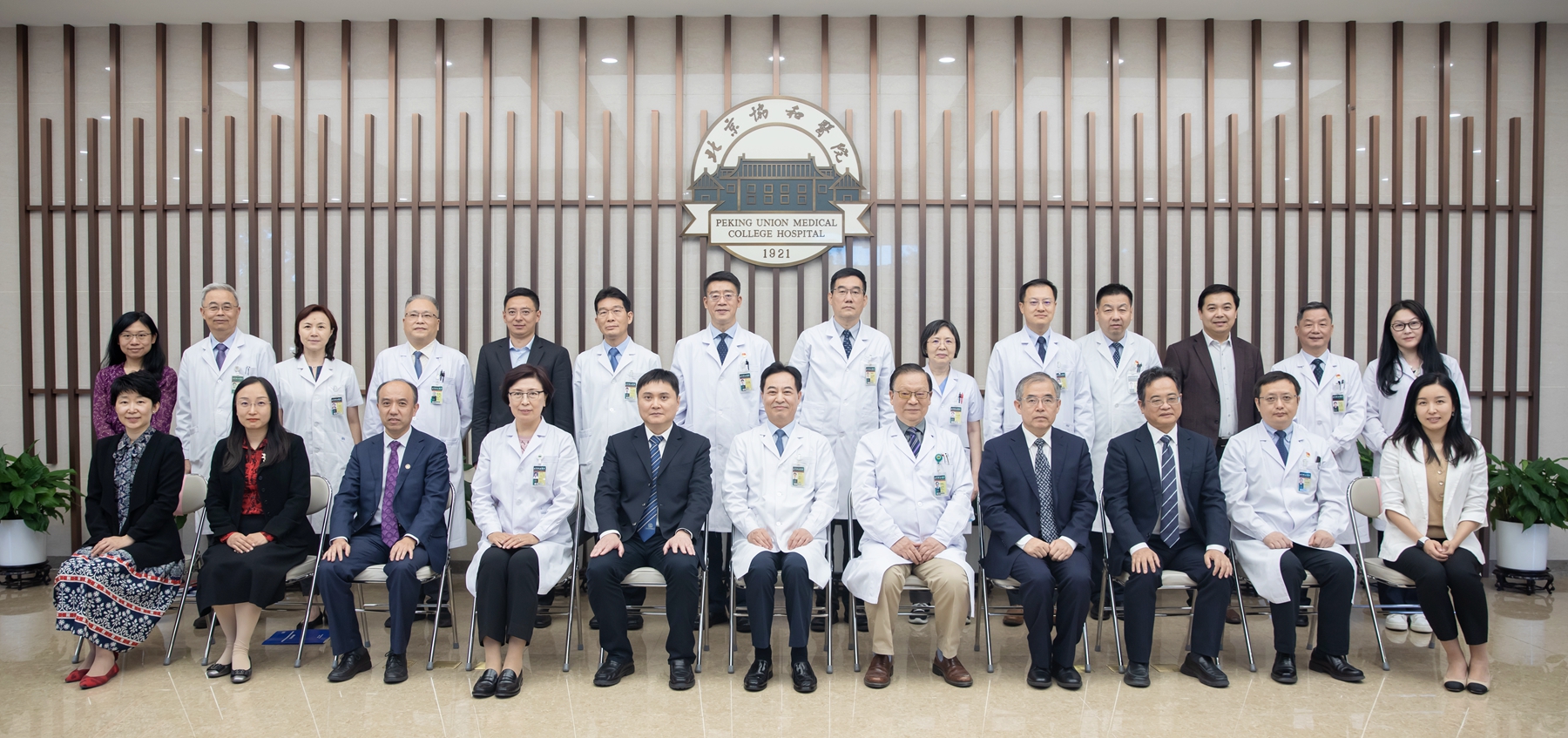On September 27, 2023, the State Key Laboratory of Complex, Severe and Rare Diseases (hereinafter referred to as the State Key Laboratory) was officially inaugurated at PUMCH in Beijing, marking a new milestone in advancing medical and technological innovation in China.

▲The inauguration of the State Key Laboratory
In his speech, PUMCH Vice President Wu Peixin pointed out that the State Key Laboratory is a strategic, mighty engine for advancing medical science and technology in China. The functional positioning, fundamental goals, and mission and tasks of the lab should all center around original research geared towards the national strategic needs and the frontiers of medicine. To that end, it is necessary to innovate management and operational mechanisms, strengthen collaboration, and provide services needed, thereby making significant contribution to achieving high-level self-reliance in medical science and technology.

▲PUMCH Vice President Wu Peixin was delivering a speech
Three guests, on behalf of higher-level competent authorities, congratulated the restructuring of the State Key Laboratory: Mr. Gu Jinhui, Deputy Director General of the Department of Health Science, Technology and Education under the National Health Commission; Mr. Tong Yang, Deputy Section Chief of the State Key Laboratory Management Division of the High-Tech Research and Development Center, the Ministry of Science and Technology; and Wang Jianwei, Vice President of the Chinese Academy of Medical Sciences and Peking Union Medical College. They also expressed their hopes that the laboratory would be able to timely adjust its positioning as it moves forward on its journey of conquering research challenges to meet national needs. In line with the “Four Oriented” (in essence, oriented towards frontiers of science and technology to develop the economy, meet national needs and improve people’s well-being), the lab should always prioritize scientific and technological innovation, and innovate institutional mechanisms to stimulate innovation vitality. They called for the lab to build its advantages and competitiveness with an open mindset, striving to bear more fruits in medical research, medicine translation, talent development and data pooling. This way, the lab will help remove bottlenecks in medical science and contribute more to China’s healthcare development and the building of a community of shared future for all.
Vice President Wang Hongwei of Tsinghua University and Wang Jing, Deputy Head of the Institute of Basic Medical Sciences, Chinese Academy of Medical Sciences, delivered speeches on behalf of their respective institution, which are partners of the laboratory. They both acknowledged the State Key Laboratory as an important part of China’s strategic strength in science and technology. Tsinghua University and the Institute of Basic Medical Sciences, Chinese Academy of Medical Sciences, will work hard with PUMCH to establish a comprehensive research system that is clinically oriented and covers the entire chain of medical issues. Together, the partners aspire to find China’s own ways of innovative research on intractable and rare diseases and establish the laboratory as a world-class medical research center.
During the inauguration, Academician Zhang Xue of the Chinese Academy of Engineering, PUMCH Vice President Du Bin, Director Zhu Lan, and Executive Deputy Director Huang Chaolan, as representatives of principal investigators (PIs), all presented their research work, objectives, tasks, views and suggestions in rare diseases, critical illnesses, intractable diseases, mass spectrometry, and proteomics.




▲The PI representatives of the laboratory from left to right, top to bottom: Academician Zhang, Vice President Du Bin, Director Zhu Lan, and Executive Deputy Director Huang Chaolan
“Today is a memorable day in the history of PUMCH”, said PUMCH President Zhang Shuyang affectionately. She shared the hospital’s determination to spare no effort in promoting the building and development of the laboratory. PUMCH will keep working on four fronts, namely platform, talent development, research projects, and organization to truly fulfill its mission of building China’s strategic strength in science and technology and improving people’s health.

▲PUMCH President Zhang Shuyang was delivering a speech
Academician Zhao Yupei, Honorary President of PUMCH and Director of the State Key Laboratory, expressed his heartfelt gratitude to the higher authorities, collaborative institutions, and fellow colleagues at the hospital for their long-term attention to and support for the laboratory. He drew attention to the fact that PUMCH is the only medical institution in China with both the State Key Laboratory and the National Infrastructures for Translational Medicine. He hoped that everyone would work together and make good use of such national-level scientific and technological platforms to deliver satisfactory performances for the country and for the people.

▲Academician Zhao Yupei, Director of the State Key Laboratory, was delivering a speech
In March 2023, with the approval of the Ministry of Science and Technology, PUMCH, in collaboration with the Institute of Basic Medical Sciences, the Chinese Academy of Medical Sciences and Tsinghua University, restructured the State Key Laboratory of Complex, Severe and Rare Diseases. The Daxing campus of PUMCH is the primary core research site of the laboratory and is equipped with a cutting-edge stem cell platform, mass spectrometry analysis platform, electron microscopy laboratory, supercomputing center, animal experimental center, and biobank. The laboratory operates under the director responsibility system and undertakes a series of original research with the focus on major, complex, severe, and rare diseases.
Under the new development model of “1+N+X”, the State Key Laboratory, the National Infrastructures for Translational Medicine and the National Clinical Research Center will work together and support each other to create an open and collaborative national-level scientific research platform for win-win outcomes.

Written by Yan Xiaobo and Chen Mingyan
Photographed by Sun Liang
Translated by Liu Haiyan
Reviewed by Wang Yao

